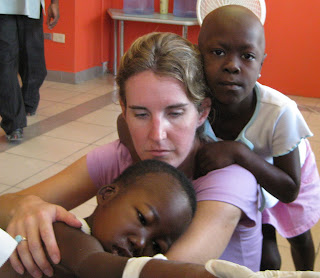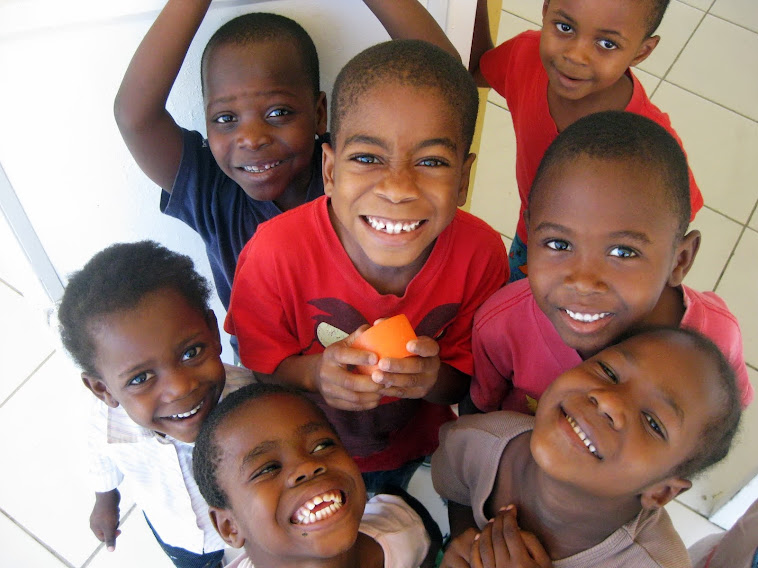I recently joined the Twittersphere. I cannot give a verdict on it yet,
as I am still learning the language. For quite a long time, I was disenchanted
with it and thought of it as a series of “instant status updates,” rather
ridiculous and unnecessary, to reference a term from yet another social media
experiment. The more I search and “follow” people and see that people I do not
even know are “following” me, the more I am amazed at how people are searching
for affirmation, acknowledgement and connection, and how giddy they will get if
a public figure replies to them. It is also fascinating that there can be this
indirect-yet-direct communication between individuals who perhaps would have
zero association otherwise. For me, being so far removed from US culture, it
has been a fun new way to access and receive links, quotes, information and
photos from organizations and people I admire. And, I admit, I found it rather
awesome when a celebrity responded to a tweet I had sent! The most awesome part
about it was that it had nothing to do with celebrity, but everything to do
with current events and issues facing the global population. Specifically, it
was that she shared an article on the Haitian death toll after Hurricane Sandy
and was being criticized by a young American who felt that “we Americans should
look after our own first, and worry about other countries later.”
I wrote a blog post last year about my near run-in with a Kardashian,
and the definition of a beautiful person. In my short tenure with NPFS, I have
met a few celebrities, and am impressed that the genuineness of their intent,
or lack thereof, is quickly obvious. To those who are truly interested in
understanding the people, culture and needs of Haiti, and in drawing attention
to our global citizenship, these visits are not about a photo op, but about
lives. The lives of little boys and
girls who jump into their arms and want to know if said individual knows
Creole. The children who ask again and again if I have a mommy and a daddy, and
if I got to go to school, and how the airplane that is taking me on a trip is
able to land without hitting all of the houses underneath it. The children who
write in beautiful cursive and painstakingly copy pictures, not believing me
when I assure them that coloring outside the lines is ok! The children who get
to attend secondary school for free, in a country where over 80%
of the population will not complete 6th grade, because a group from the entertainment industry saw what Fr. Rick has been doing here and wanted to work with
him. The children suffering from the horrendous disease of cancer but who can still smile
after a blood draw or IV placement is finished, whose eyes light up in response
to my greeting.
I mentioned in the previous post that the heaviness, much more than the
lightness, which comes with this experience has been much more present to me.
The light moments are still there, such as a shared laugh this morning with my
brave little friend who yelled, “Bravo!” when I told him his picky was
finished, then immediately stopped crying and demanded a well-deserved piece of
candy. The humor and faux-defeated look in the teenager’s face when I caught
her off-guard and sat her down for a forced hair-washing session. (Two months without shampooing was long
enough, and the silly girl bragged about it – she was asking for an
intervention!) Sherlin’s portrait of me (see below). The fact that everyone in
the cancer ward now calls me “Bibbitte,” thanks to the little boy who cannot
pronounce “Brigitte.” The early mornings with the two boys who work tirelessly at
our volunteer kitchen, as they tease me about my coffee intake and get me to
laugh out loud, no matter how poorly I have slept. The smile that comes to my
face as I watch the cows cross the road, and I notice that the mother cows
stop, turn their heads to block their babies from crossing, check that traffic
is clear, then proceed. Sitting with Steven, who is fighting a septic
infection, as he places his hands in mine and tells me with a smile, “Your
hands are so warm.” The joy of sharing long-awaited news with our kindergarten
principal, that she is finally pregnant. Her disbelief and the energetic hug I
receive when I repeat that, “Yes, it’s true! I will start calling you mama!”
 | |
| Brigitte, according to Sherlin, aged 8 |
 |
| Sitting with the bravest of the brave |
There are times that the immensity of the poverty here and the weight
of this experience literally take my breath away. The clouds of burning trash
are becoming more frequent and acrid. The crises which come each day to
interrupt even the most flexible plan are constant. Death is never far away,
and comes from conditions which could be cured from a simple doctor’s visit in
the States and a prescription.
I held the hands of an 11-month-old girl who arrived to the oncology
ward much too late, and on the last day of her life, we shared a few moments’
gaze as I kissed her fingers and massaged her flaccid arms. Several young
children’s bodies have been found in the fields surrounding the hospital,
likely left there by panicked mothers who feared the reprimand of others
because they could not transport their sick children to us in time. The sadness
is palpable, the desperation visible. Attempts to empower are met with
frustration and confusion. The desire to dignify and teach is pushed aside by
the demand for a quick fix and continued culture of dependence. The deficits
and disparities are nauseating, the scale of emotions and amount of energy
spent each day excruciating. The threat of famine now sits over this country,
as 90% of the agriculture grown on the farms in the south and west was
destroyed in Hurricane Sandy. What took years to create will take years to
change and undo. Thousands of moments each day, I must pause and remember this
as I yearn to demonstrate compassion, patience and understanding.
There are
still those who believe that Haiti should die, and who are unafraid to express
their vehement hate under the supposed disguise of the internet. But we are
commanded to love our neighbor as ourselves, and I believe that includes a
global responsibility. Respect, in my eyes, is a right, not a privilege. We are
all called and moved by different causes, and we have a responsibility to give generously
toward those causes in the ways that we are able. Some of us are called to work
locally, others internationally. I am moved every day by the numerous
opportunities I have to choose love, and I pray that I meet that challenge. It
is easy to look back at night, and to think through all of the tasks still left
undone. But it is critical to our survival here to look beyond those, and to
cherish the unexpected moments (and believe me, those are countless!) which
provided us the chance to dignify, to listen, to embrace, to give, to laugh and
to be present to those we encountered.
 |
| An afternoon walk with a few of my oncology kiddos |
 |
| Sweet Valson, thriving at the Kay Germaine school |
 |
| Just a little chat with my girl Erline |
The pain of the distance between here and my home stateside is
especially acute in seasons of loss and grief. I learned of the passing of a
young hero who shares my name, Bridget the Brave. Some dear friends have learned that their
child will be born with a broken heart. Another friend is suffering greatly
with serious illness. I strive to be practically available to those I love when
they are in need, and to be so far away and unable to do so is excruciating. To
let go of that ability and to trust that my love and friendship can survive
without being personally present is not an easy concept for me. I love to give,
in word and in deed, and the separation tears at my heart and mind. So, I
walk to the places where I can be present, witnessing the bravery of young
cancer patients and watching the little ones at our Angels of Light homes grow
and thrive. I enter the gate, hear my name and hug the little one who rushes
toward me with all of his might. I sit for several minutes holding Steven,
warming his hands with mine. I listen to the nurses as they passionately share
their observations about how the clinic still needs to improve. I bring extra
bobby pins to the hospital for the afternoon so Nellie can braid my hair. I
rejoice when Kevin smiles, a rare occurrence, and watch him grow in confidence
as the days pass and his appetite returns after his course of chemotherapy.
This world is broken; our hearts are broken as well. We see evidence of
this on a daily basis. Our heartbreak may be physical, emotional, or spiritual.
Some of us try to avoid facing it; others tend to dwell on it incessantly. We
are often quick to give an opinion as to why we suffer, to place blame and to
divide, but we are not so willing to sacrifice or work for change. My challenge
to myself during this season is to examine my heart, to be genuine, to exercise
passion and discernment, and to be the love to those around me that I so crave
to have. In loving others, in giving to others, in listening to others, in being
willing to understand others when we are tempted to judge them, in encouraging
honesty, we can begin to heal the brokenness.
Elie Weisel said, “The opposite of love is not hate, it’s indifference.”
May we choose to rebuke apathy, and in doing so, choose to feel, act and love
generously and genuinely. In turn, we can induce change and find peace.


























